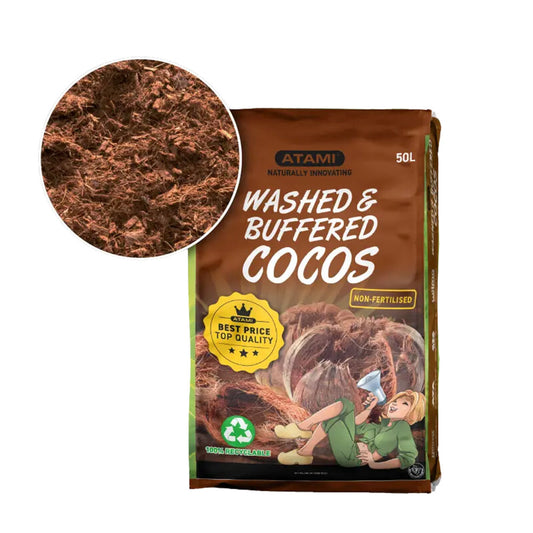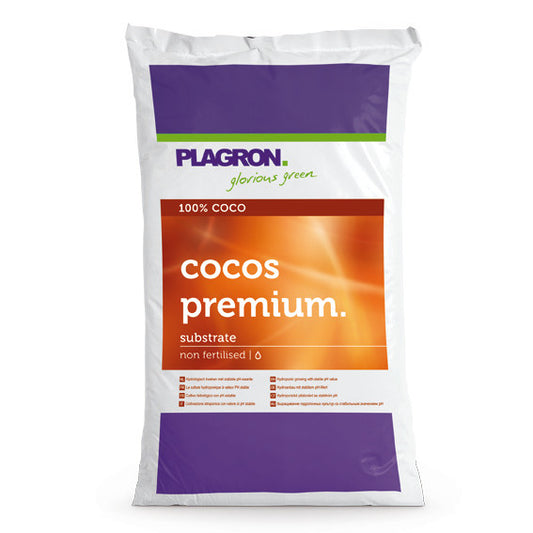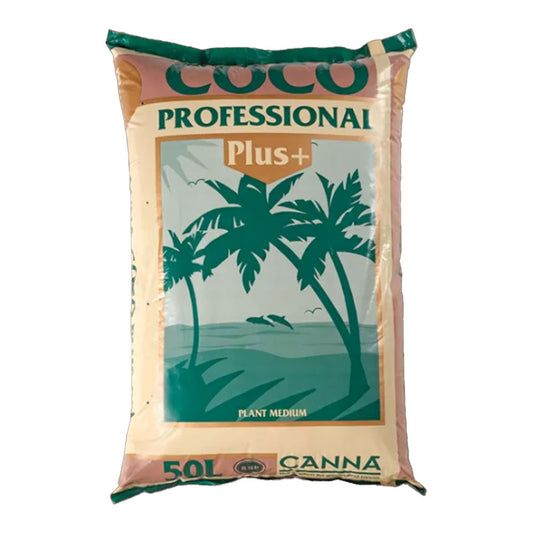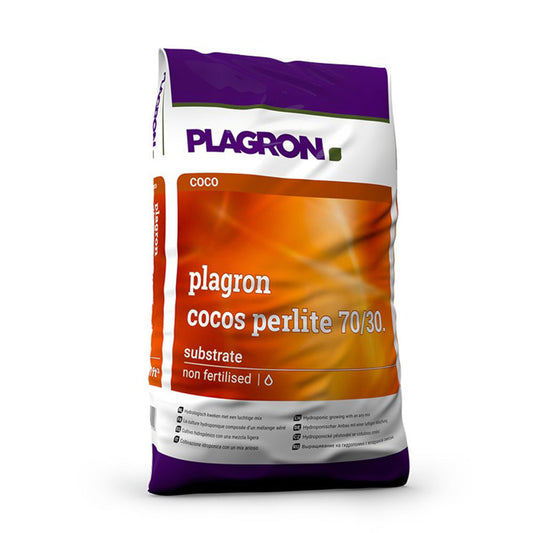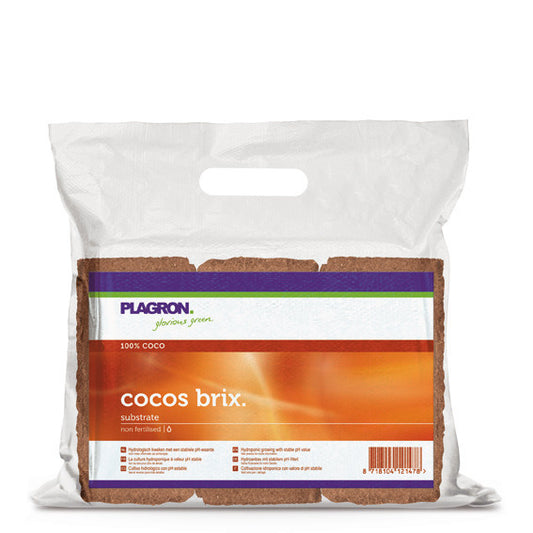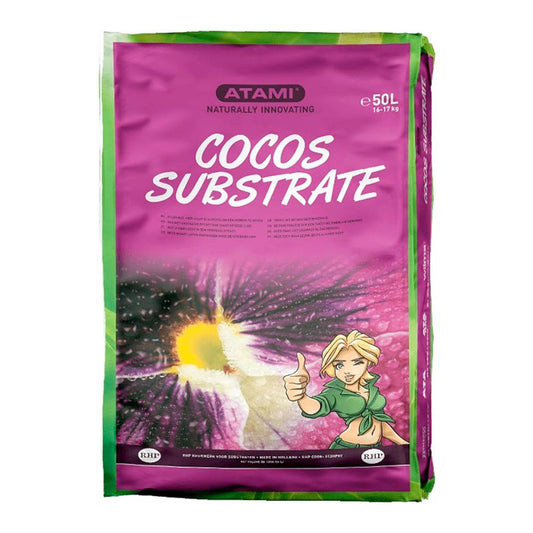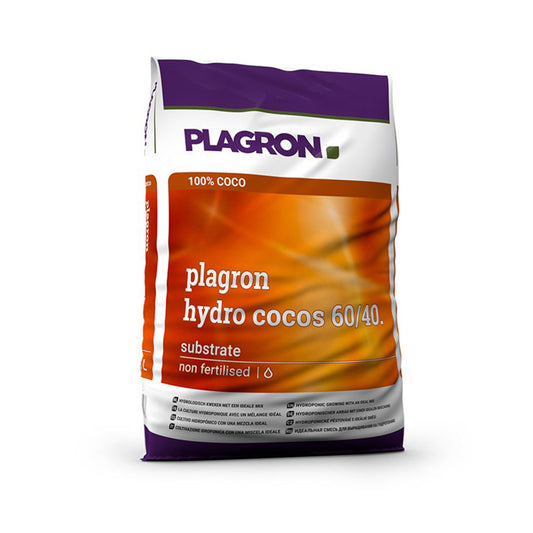Coir - Why choose coir substrate over potting soil
Growing in coconut substrate is gaining popularity among gardeners because of its specific characteristics. Coconut is also one of the preferred substrates in Growshop Gardener, and in the following lines you will find out why.
What is coconut substrate?
Coconut (Coco coir) is a product obtained from the fibers of coconuts. In its production, coconut husks are soaked in water to soften the fibers, and then they are separated. Some of these fibers are used for the coir substrate that we use.
What is Buffered Coir Substrate?
The buffered coconut substrate is valued for its ability to stabilize the pH level. Before it reaches your garden, this substrate goes through a careful preparation where it is treated with a mixture of calcium and magnesium. This treatment reduces the naturally high pH of the coconut substrate and brings it into an ideal range, usually between 5.5 and 6.5. As a result, it creates a stable and almost neutral environment that allows plants to develop successfully. In addition, buffering reduces the content of excess salts and improves the cation exchange capacity of the substrate, making the coconut substrate very efficient for nutrient uptake.
What is washed coconut substrate?
Washed coco substrate is a high-quality variant of coco substrate and stands out for its exceptional qualities as a growing medium. Made from the fibrous husk of coconuts, it has established itself as a preferred choice among gardeners, especially in hydroponic systems. One of its notable features is its exceptional ability to hold water while retaining an impressive 22% oxygen, making it more effective than even the more expensive mineral wool in terms of air retention. This makes it an excellent choice for gardeners, especially beginners, providing protection against over- or under-watering as well as temperature fluctuations. Additionally, coconut substrate has antimicrobial properties that protect plants from common root diseases such as Pythium and Phytophthora.
The Big Dilemma: Buffered vs. Washed Coir Substrate
Let's look at the main features of buffered and washed coco substrate to understand their key differences:
Buffered Coconut Substrate:
pH stability: Buffered coco substrate is known for its stability in the pH range (usually between 5.5 and 6.5), providing a balanced environment for plants.
Nutrient retention: It offers excellent nutrient retention capacity, reducing the risk of nutrient deficiencies or excesses.
Reduced salt content: The buffered substrate goes through a process that removes excess salts, supporting the development of healthy roots.
Washed coconut substrate:
Cleanliness: The washed coconut substrate is extremely clean. It goes through a thorough rinse to remove salts and contaminants, making it an ideal choice for sensitive plants.
Personalized nutrient management: Gardeners have greater control over the nutrient management of the washed coco substrate, allowing precise adjustments to plant needs.
Suitable for hydroponics: With low levels of electrical conductivity (EC), washed coconut substrate is suitable for hydroponic systems where nutrient management is paramount.
You no longer need to choose -Atami Washed and Buffed Cocos.
Coir or Soil - Which is Better for Your Plants?
The choice between coco coir and soil depends on the specific needs of your plants and the conditions in which you grow them. However, coconut has uses even for gardeners who grow their plants in soil.
Advantages of coconut substrate:
Coconut substrate has excellent aeration and allows the roots to breathe better, resulting in healthier and faster growing plants.
The substrate retains enough water, but at the same time prevents waterlogging, which can be a problem with traditional soil.
Coconut is a renewable resource and its use as a substrate is more environmentally friendly than some other types of substrates.
Coconut substrate is more resistant to pathogens and pests, which reduces the need to use pesticides and chemicals.
Due to the fact that coconut is more "passive" than soil, it allows gardeners more control over the use of fertilizers and boosters.
Disadvantages of Coconut:
Coir does not have the same barrier qualities as soil and is more susceptible to pest and disease infestation.
Coir is a light material, which on the one hand is a plus because it's easier to work with, but on the other hand, coir generally doesn't anchor plants as well as soil.
Coconut is slightly more expensive than traditional soil.
How is coconut used?
Coconut substrate has a wide range of applications in horticulture. Here's how you can use it:
Coconut as the main substrate
It is ideal for hydroponic systems due to its excellent aeration and because it does not add unwanted nutrients.
Coconut is also used very often as the main substrate in traditional pot growing. All its advantages are applicable here as well.
As part of the main substrate - many gardeners mix coconut with soil to improve its qualities.
Mulching
Mulching involves spreading a layer of coconut mulch over the surface of the soil or other substrate. The purpose is to regulate the temperature of the main substrate and retain moisture in it.
What is the best coconut substrate?
It is important to choose coconut from a reputable producer. Since low-quality coconut substrate (like all substrates) carries risks, it is better to buy high-quality coconut than to risk the results of your harvest.
The coir substrate must be thoroughly washed and proper packaging and shipping practices followed. You can completely trust:
•Cocos Substrate by Atami
•Coco Professional Plus by Canna
•Cocos Premium by Plagron
And our favorite remainsCocos Washed and Buffed by Atami.
All products ingrowshop "Gradinar"are selected to meet the highest quality criteria. We only work with proven manufacturers and products.

